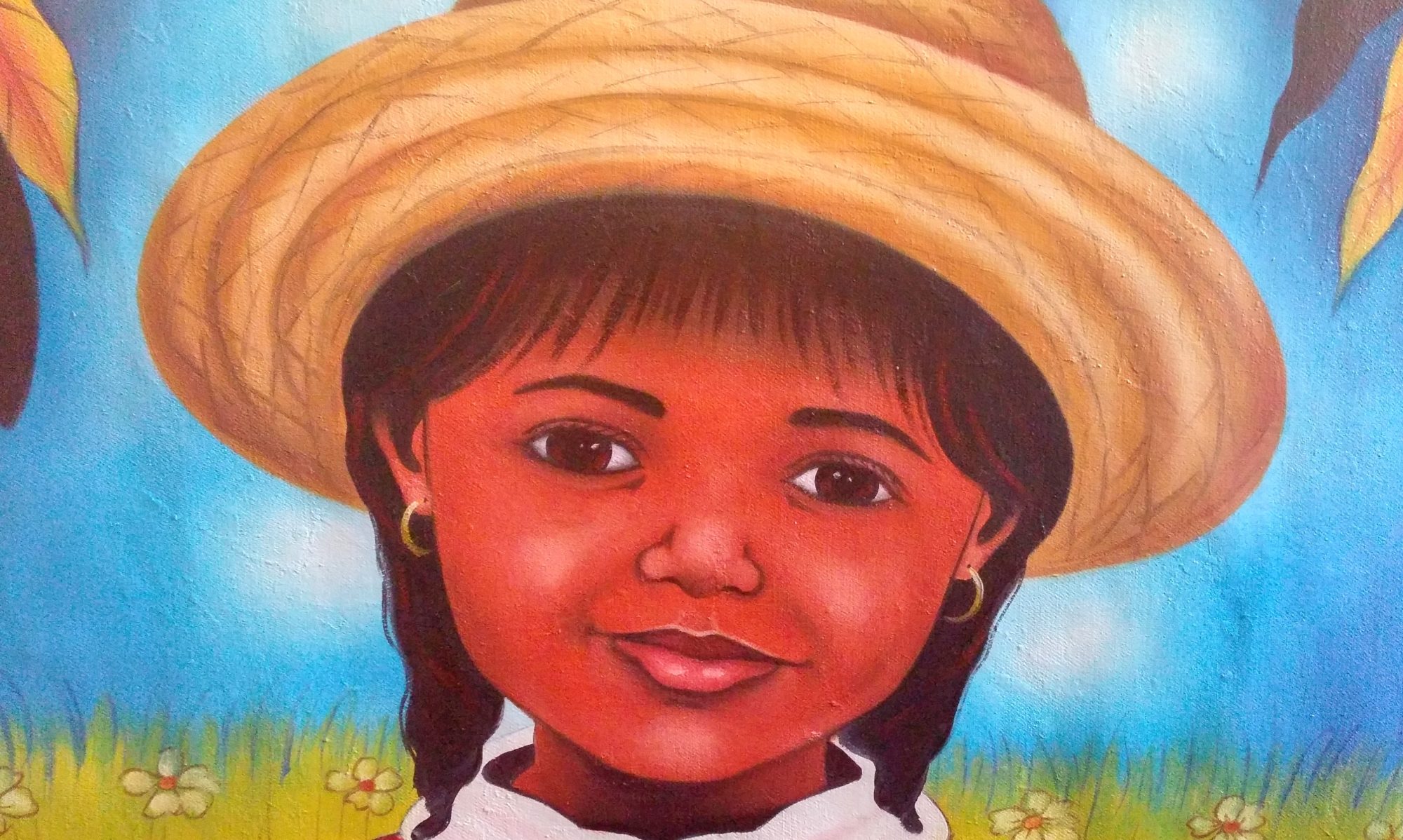Fleeting Images
Two fleeting images have followed me throughout the years: I am not sure whether they are true memories, vague remnants of dreams, or even figments of my imagination.
One is during carnival: I am in the arms of our nanny/helper. She is following my father who is walking on the sidewalk toward the famous Nobbe-Bondel restaurant on the boulevard de l’Exposition. The place is crowded and Dragon, a carnival band known for its violence, is passing by. I feel the panic of being lost in the crowd. I still remember vividly feeling that panic.
The second image finds me going down the flight of stairs at the Club Port-au-Princien. I am in my Sunday-best. I am in the middle of the immense staircase. I am careful, taking one small step at a time. I am looking at my shiny white patent leather shoes. I can see those shoes even today.
I was born in Port-au-Prince. I don’t remember my first childhood home, except from pictures in my family album. My memories of home are tied to the second house into which my family moved when I was four or five years old. The house was located on a street corner. There was a large mahogany tree by the gate. That house was sold in 1968, and later destroyed to build the College Canado-Haïtien.
We moved to Pétionville. Curiously, for the longest while and still today, some of my dreams take place in that house. I have lived elsewhere but never have dreams set in these other houses or apartments.
I have three siblings. We get along well, though we are not very demonstrative in display of affection. I remember my mother always repeating that we had to stick together; family feud was the worst thing which could happen. My mother said we should always look out for one another. She used to tell us: “You cannot cross over your blood”; she would scold us if ever we gave the impression of preferring friends to our family. She would quip: “Wete trip mete pay.” [Wete trip mete pay means, literally, to remove one’s viable organs and replace them with lifeless hay. It is the epitome of self-destruction.]
There is an eleven month gap between one brother and me; a six year gap between myself and my two younger siblings. I remember fighting savagely with my brother once because of the younger ones; I don’t recall the specific reason for our confrontation. Consequently, we both received a sound beating from my father–who seldom beat us. Our fight became a kind of family lore. The incident taught me a valuable lesson about myself; I never allowed myself to be violent again.
I spent the summer vacation of 1966 at my grand-parents in Tèt-dlo, in Pétionville. There were many of us there that summer: cousins, friends, and other relatives. We had a great time walking to Fort-Jacques through Lully, going to the beach, playing bezigue and dominoes in the evening while my eldest cousins played carnival songs on the piano. We were oblivious of the curfew that had been declared.
As I got older, my brother became my chaperone. When we went out, we hung out with our respective “crews.” When my younger siblings became teenagers, they had their own crews, too. I left the country soon afterwards on a scholarship. When I came back, we were all ‘responsible’ adults.


